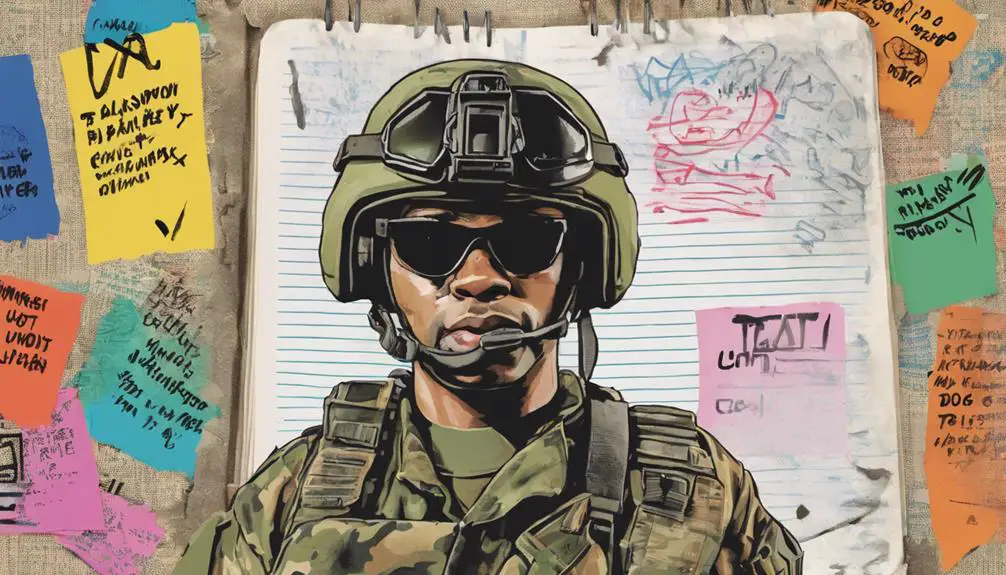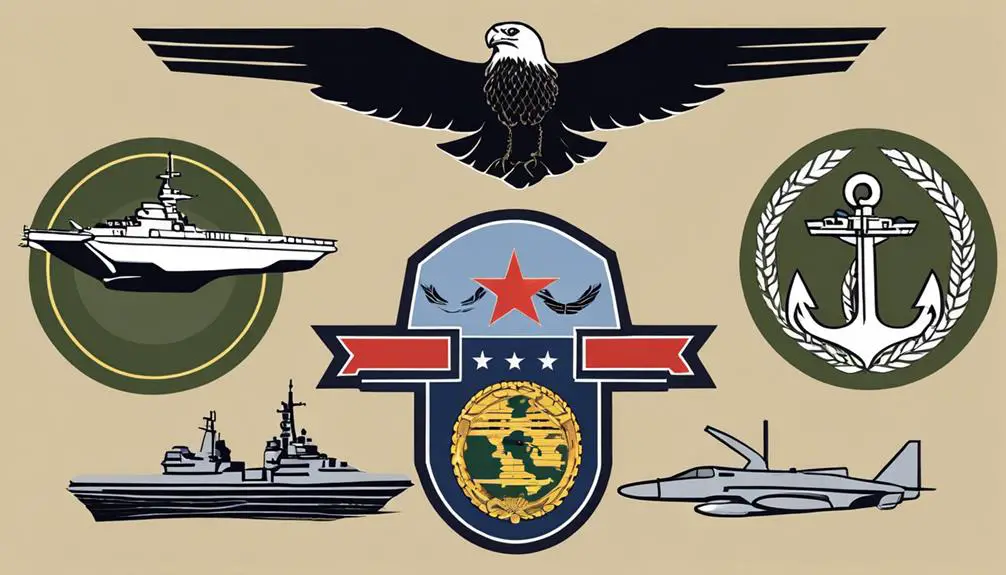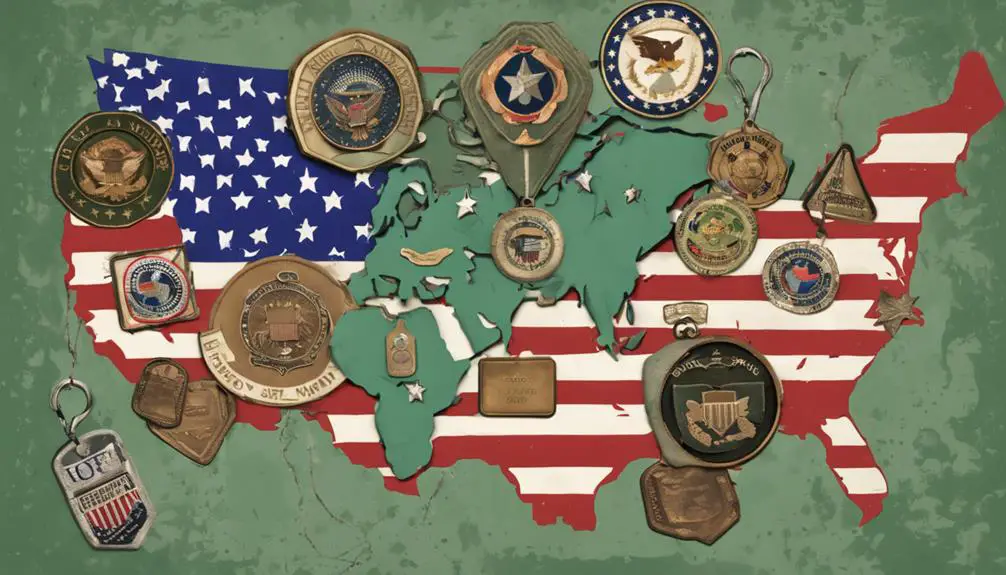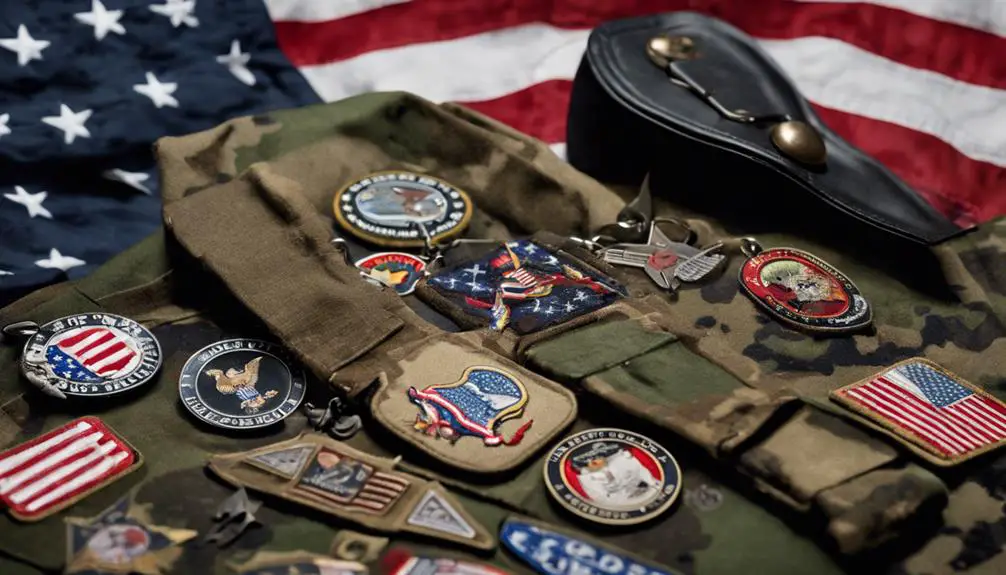You're about to explore the world of military slang, where acronyms like 'SITREP' and 'COMMS' convey essential information, and phrases like 'Hooah' and 'Oorah' ignite enthusiasm. Familiarize yourself with Army, Navy, Air Force, and Marine slang to enhance communication and camaraderie. Learn how 'Saddle up!' means 'get moving,' and 'Drop and give me 20!' means 'do 20 push-ups.' Discover unique phrases for special occasions, from 'Fair winds and following seas' to 'Hold fast.' As you dive deeper, you'll uncover the rich history and cultural significance behind these expressions, connecting you to a proud military tradition.
Essential Military Acronyms

Get familiar with these essential military acronyms that'll help you decode the military lingo and communicate effectively with troops. You might've heard of 'SITREP' or 'COMMS,' but do you know what they stand for? Understanding the origins of these acronyms is key to deciphering military code.
Take 'SITREP,' for example, which stands for 'Situation Report.' It's a brief update on a mission's progress, providing vital information to commanders. Another common acronym is 'COMMS,' short for 'Communications.' It refers to the exchange of information between units or command centers.
Deciphering these acronyms can be a challenge, but knowing their meanings can give you a better grasp of military operations. You'll be able to understand military briefings, reports, and even casual conversations between soldiers. By familiarizing yourself with these essential acronyms, you'll be better equipped to communicate with troops and stay informed about military operations.
Military Jargon for Newbies
As you've cracked the code of military acronyms, it's time to tackle the colorful world of military jargon, where phrases like 'Hooah' and 'Oorah' become part of your everyday vocabulary. As a newbie, you'll quickly learn that military jargon is more than just slang – it's a way to communicate quickly and efficiently in high-pressure situations.
To get started, let's cover some Boot Camp Basics. You'll hear phrases like 'Saddle up!' (get moving) and 'Gear up!' (get ready). Your Drill Sergeant will yell 'Drop and give me 20!' (do 20 push-ups), and you'll respond with 'Yes, Drill Sergeant!' (acknowledging the order).
In this Rookie Rundown, you'll learn to navigate the military's unique language. You'll discover that 'Hooah' (a general expression of enthusiasm) and 'Oorah' (a Marine-specific battle cry) are more than just fun phrases – they're a way to express camaraderie and unity.
Slang From Different Branches

You'll find that each branch of the military has its unique slang, with the Army using 'Hooah' to express enthusiasm, while the Marines prefer 'Oorah' as a battle cry. This distinct language helps create a sense of identity and camaraderie within each branch.
In the Army, you'll hear 'Hooah' used to express excitement or approval, similar to 'yes' or 'agreed.' Army Lingo also includes terms like 'FNG' for 'Freaking New Guy' and 'SITREP' for 'Situation Report.'
In the Navy, you'll encounter Navy Jargon like 'scuttlebutt' for gossip or rumors, and 'head' for the bathroom.
The Air Force has its own lingo, with 'Bingo' meaning 'enough' or 'that's it,' and 'ACE' standing for 'Aircraft Commander's Estimate' of the situation.
The Marines, known for their toughness, use 'Oorah' to express motivation and enthusiasm. Understanding these unique slang terms can help you better communicate with service members and appreciate the distinct culture of each branch. By learning these terms, you'll be better equipped to navigate the military's linguistic landscape.
Phrases for Special Occasions
When celebrating milestones like promotions or deployments, military personnel often use specialized phrases to mark the occasion, such as 'Fair winds and following seas' to bid farewell to departing comrades.
You'll also hear phrases like 'Hoo-ah!' to express excitement and enthusiasm during celebrations.
On a more personal level, wedding wisdom is shared through phrases like 'Hold fast' – a reminder to hold on to love and commitment. Similarly, birthday banter often involves playful jabs about getting older, with phrases like 'Older, but not wiser' or 'Still got it, though!'
When it comes to promotions, you might hear 'Rank has its privileges' or 'New rank, who dis?' to poke fun at the added responsibility.
These unique phrases add a touch of military flair to special occasions, making them even more memorable. Whether it's a wedding, birthday, or promotion, military personnel know how to make the most of a celebration with their signature slang.
Timeless Military Expressions

Military lingo is full of timeless expressions that transcend generations and branches of service, and you'll likely hear them echoing through the halls of bases, barracks, and mess halls. These phrases have historic origins, often rooted in the cultural significance of military traditions.
You might hear a senior officer say 'Hooah' to express enthusiasm or agreement, a term originating from the World War II-era 'Hoo-ah' battle cry. Similarly, 'Oorah' is a Marine Corps staple, derived from the Turkish 'ooray' meaning 'kill' or 'destroy.' These expressions have become an integral part of military culture, conveying camaraderie and shared experience.
You'll also hear 'Roger that' to acknowledge instructions, which originated from the NATO phonetic alphabet. These timeless expressions have been passed down through generations, connecting service members across branches and eras. They evoke a sense of pride, loyalty, and shared identity, making them an essential part of military language and culture.
Frequently Asked Questions
What Is the Origin of the Term "Hooah" in the US Army?
Let's delve into the history of 'Hooah' in the US Army.
The term 'Hooah' is believed to have originated in the 1960s, when soldiers used it to express enthusiasm or approval. It's thought to have come from the acronym 'HUAH,' standing for 'Heard, Understood, Acknowledged.'
Over time, it evolved into a motivational phrase, used to boost morale and teamwork.
Today, 'Hooah' is an integral part of Army culture, symbolizing camaraderie and esprit de corps.
Are Military Slang Words Used Universally Across All Branches?
You might assume that military slang is standardized across all branches, but that's not entirely true. While some terms are universally understood, branch variations and inter-service differences exist.
For instance, the Army's 'hooah' mightn't be as commonly used in the Navy or Air Force. Each branch has its own unique culture and lingo, shaped by their distinct histories and operational environments.
You'll find that some slang words are adopted across branches, but others remain specific to their branch of origin.
Can Civilians Use Military Slang in Casual Conversations?
You're wondering if you can casually toss military slang into everyday conversations. While it's tempting, consider cultural appropriation concerns.
Using military slang without understanding its context or significance can come across as disrespectful. However, if you're genuinely interested in integrating military slang into your everyday language, go for it!
Just be mindful of the origins and avoid using terms that might be sacred or sensitive to veterans.
How Do Military Slang Words Evolve Over Time?
You might wonder how military slang words evolve over time. It's a process of linguistic adaptation, where words and phrases are shaped by historical context.
As cultural and social norms shift, military slang adapts to reflect these changes. New words emerge, while others fall out of use. This evolution is driven by the need for efficient communication in high-stress environments.
As you explore military slang, you'll notice how it reflects the era in which it was used.
Are There Any Military Slang Words Specific to War Zones Only?
You're about to enter the fog of war, where language gets lost in translation.
In the trenches of war zones, you'll discover a unique dialect, forged in the fire of combat.
War Zone Lingo, or Combat Jargon, emerges as a survival mechanism, allowing troops to communicate quickly and efficiently.
You'll hear terms like 'kinetic' for intense combat or 'blue force' for friendly forces.
These words are born from the chaos of war, serving as a secret handshake among those who've seen the worst of humanity.
Conclusion
You've now got a solid grasp of the best military slang, from essential acronyms to timeless expressions.
Remember, 'knowing is half the battle.'
As you navigate the world of military jargon, keep in mind that understanding these terms will help you communicate effectively and build camaraderie with fellow service members.
So, go ahead, throw around some 'hooahs' and 'oscar mikels' – you're now part of the military slang squad!







